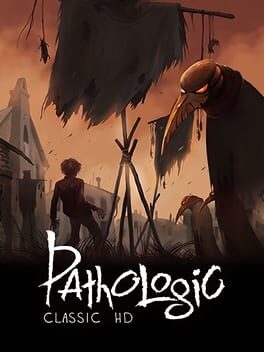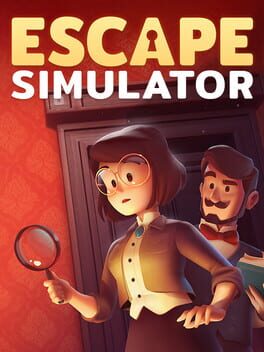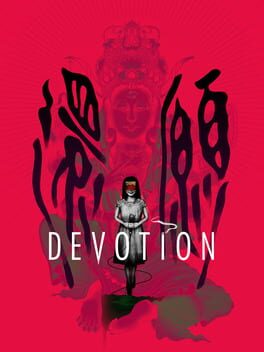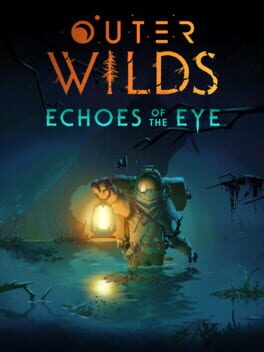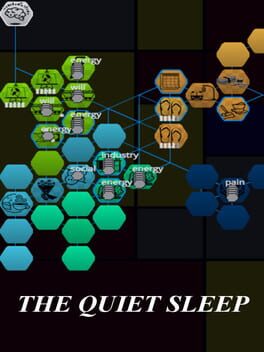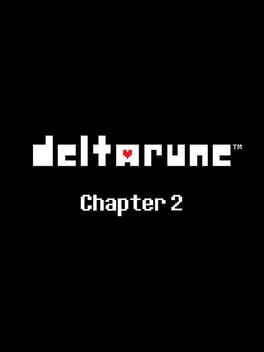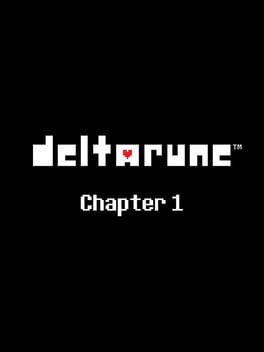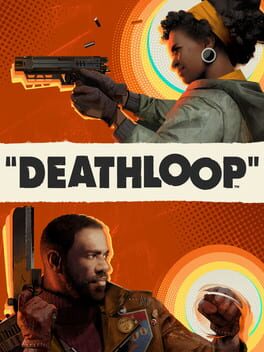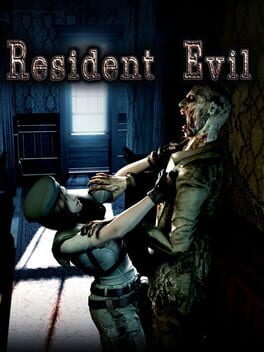nex3
BACKER
No doubt about it, this game is a slog. I only played the Bachelor's route, and that alone took 30+ hours of playtime, most of which was spent just reloading saves as I tried to navigate the town without dying. It's also surreal, haunting, and beautiful. In many ways, the pain of playing is wrapped up in this beauty: the game is about the suffering required to do right and the difficulty of understanding what "right" even is, and the friction in playing can easily be read as part of that. I'm not likely to jump right into the next route (and in fact I'll probably just focus on Pathologic 2 from here out), but I'm very glad to have experienced this much.
2021
2021
Probably my favorite 2D Metroid, but I'm not sure I've ever completed another one so I don't know how much that really says. The exploration feels really good, and the movement puzzles are a canny way to avoid making exploration purely about "shoot every suspicious wall." The boss fights on the other hand are an awful mess of "guess my gimmick" and quick-time events. If you really want a great Metroid-like, play Environmental Station Alpha.
2019
a moving story effectively told. I feel like this leans a little harder on jump scares than it needs to when the most emotionally striking parts of the game were the least horrific ones, but that may be necessary if the goal is to be a "horror game" rather than a "walking simulator" (which I imagine opens the door to a significant number of additional players)
2016
This review contains spoilers
Although I found the acid-trip ending to be a bit of a cop out, a means of expressing a bunch of ideas without having to come up with any connective tissue or commit to abstraction, on the whole I thought this was very good. More and more games try to go for the cinematic feel, but few nail the sense of pacing the way Virginia does. The rhythm of the storytelling is so strong that it dissuades the player from the typical instinct to explore every corner of the space.
2017
This game does have the property wherein describing what's happening sounds like telling a story, which I appreciate a lot, but represents the minimum level of narrative/mechanical connection that still has that property. All the game pieces just consume some resource(s) and produce others, and that monomorphism puts a hard limit on how interestingly it can express stories.
2021
2018
The first time I played this, it made almost no impression. I remembered essentially nothing beyond the fact that I had in fact played the game, so I decided to replay it before diving into chapter 2 (and take the opportunity to ensure I triggered all the missable content as well). And honestly, I wasn't giving this game its due the first time around.
It's still clearly only a prelude to something that will end up being much bigger and as such it spends a lot of its time setting up systems and ideas that necessarily don't get paid off, but the writing is still delightful and the characters made a much stronger impression. I think this benefits a lot from being further out from Undertale--as much as Deltarune is supposed to be a companion piece, its incompleteness is highlighted by comparison to Undertale's trim and tidy self-contained structure.
It's still clearly only a prelude to something that will end up being much bigger and as such it spends a lot of its time setting up systems and ideas that necessarily don't get paid off, but the writing is still delightful and the characters made a much stronger impression. I think this benefits a lot from being further out from Undertale--as much as Deltarune is supposed to be a companion piece, its incompleteness is highlighted by comparison to Undertale's trim and tidy self-contained structure.
2021
I can't believe it's taken this long for Western AAA to learn what a time loop is. Majora's Mask came out in 2000. Moon was 1997. Fuck, Groundhog Day was 1993!
I'm glad the eventual result was turned out so well, though. Deathloop is so smart in so many ways. The interweaving of cause and effect, setting up dominoes and watching them fall, that forms the core of the main plot is as meticulously precise as one would hope. (To be honest, if you can't execute on that well you have no business making a time loop game in the first place.)
Even more impressive is the way it exists in dialog with modern game conventions: it has DNA from roguelikes, soulslikes, shooters, and of course Arkane's hallmark immersive sims (which feel almost like practice runs for this game). Plenty of games throw in the latest trendy mechanic, but what sets Deathloop apart is how integral they all feel--again, how smartly the game takes exactly what it needs from each genre and fits it into an incredibly cohesive whole.
I'm glad the eventual result was turned out so well, though. Deathloop is so smart in so many ways. The interweaving of cause and effect, setting up dominoes and watching them fall, that forms the core of the main plot is as meticulously precise as one would hope. (To be honest, if you can't execute on that well you have no business making a time loop game in the first place.)
Even more impressive is the way it exists in dialog with modern game conventions: it has DNA from roguelikes, soulslikes, shooters, and of course Arkane's hallmark immersive sims (which feel almost like practice runs for this game). Plenty of games throw in the latest trendy mechanic, but what sets Deathloop apart is how integral they all feel--again, how smartly the game takes exactly what it needs from each genre and fits it into an incredibly cohesive whole.
As meticulous as the plot is, the characterization is a bit rough around the edges and what I'll just call "the prestige" doesn't dovetail quite as well with the structure of the game as I hoped it would. I enjoyed 999, but more than anything it's made me interested in what a more refined take on these ideas would look like. I'm looking forward to playing more Uchikoshi games.
2010
In twenty or thirty years, if the world's still around by then, I strongly suspect that Bethesda RPGs will exist in that particular space where those of us who lived through them insist to a skeptical audience of video game history enthusiasts how important they were. "You have to understand," we'll say, "I know they're unbelievably glitchy and they play like a bicycle with hexagonal wheels, but these were huge. EVERYONE played these." For all their flaws, these games defined a particular ideal of gaming experience not so much by what they were as by what they aspired (and inevitably failed) to be.
Of course, New Vegas isn't a Bethesda game. It was developed by Obsidian Entertainment and it has a distinctly different design sensibility. At the same time, it clearly is a Bethesda game: the expectations created by Fallout 3 and the constraints imposed by the engine itself make the moment-to-moment experience of playing much more alike its siblings than it is different. And so it exists in the liminal space of the cover artist, stuck with a song but still given the freedom to put their own spin on it.
New Vegas's spin is grand political struggle. Although other Bethesda games have their obligatory world-altering main quests, none extend so deeply through the vast game world or make it seem so much like a real place where real people are struggling with and against one another to make the best of a bad situation. The way it seeks to breathe life into the Mojave Wasteland is the heart of what sets New Vegas apart. Proper Bethesda games grasp desperately at an ideal of "realism" defined by interactive stuff: in the real world you go anywhere, talk to anyone, and touch anything you see, so the most realistic games must be huge maps littered with stuff you can pick up and people who will talk to you about arrows and knees.
My friend Bret and I call this approach "lumpy realism", after the mountain of discrete objects it engenders. And while New Vegas is beholden to lumpiness, it's mostly a trapping of its ancestry. It's more interested in what I'll call "decisive realism", the promise that the choices you make as a player matter in some deep sense. This is still an ideal whose shortcomings will always show the seams of artificiality, but it's also one that makes space for writing and plotting, the unsung heroes of the RPG genre.
For my money though, the most interesting thing about New Vegas is less what it tries to do and more the negative space left behind by what it doesn't try to do. Because it's less interested in leaving interactive stuff all over the place (and possibly because of development time constraints), it has a number of places that just exist. They're not part of a quest, they don't have lore, they're not meaningfully interactive in any way. They're just spaces and models and textures that exist for you to be near and look at. That's a sort of realism too, even if it's not intentional. After all, even though I could interact with anything in the world, in reality, I usually choose to just take it in.
Of course, New Vegas isn't a Bethesda game. It was developed by Obsidian Entertainment and it has a distinctly different design sensibility. At the same time, it clearly is a Bethesda game: the expectations created by Fallout 3 and the constraints imposed by the engine itself make the moment-to-moment experience of playing much more alike its siblings than it is different. And so it exists in the liminal space of the cover artist, stuck with a song but still given the freedom to put their own spin on it.
New Vegas's spin is grand political struggle. Although other Bethesda games have their obligatory world-altering main quests, none extend so deeply through the vast game world or make it seem so much like a real place where real people are struggling with and against one another to make the best of a bad situation. The way it seeks to breathe life into the Mojave Wasteland is the heart of what sets New Vegas apart. Proper Bethesda games grasp desperately at an ideal of "realism" defined by interactive stuff: in the real world you go anywhere, talk to anyone, and touch anything you see, so the most realistic games must be huge maps littered with stuff you can pick up and people who will talk to you about arrows and knees.
My friend Bret and I call this approach "lumpy realism", after the mountain of discrete objects it engenders. And while New Vegas is beholden to lumpiness, it's mostly a trapping of its ancestry. It's more interested in what I'll call "decisive realism", the promise that the choices you make as a player matter in some deep sense. This is still an ideal whose shortcomings will always show the seams of artificiality, but it's also one that makes space for writing and plotting, the unsung heroes of the RPG genre.
For my money though, the most interesting thing about New Vegas is less what it tries to do and more the negative space left behind by what it doesn't try to do. Because it's less interested in leaving interactive stuff all over the place (and possibly because of development time constraints), it has a number of places that just exist. They're not part of a quest, they don't have lore, they're not meaningfully interactive in any way. They're just spaces and models and textures that exist for you to be near and look at. That's a sort of realism too, even if it's not intentional. After all, even though I could interact with anything in the world, in reality, I usually choose to just take it in.
2019
What's the point of this? When a Gnosia and I both claimed to be engineers and my information was proven correct, people still didn't vote her off! Is this designed to emulate the infuriating experience of playing werewolf with people who don't understand how the game works and just make every decision based on gut feeling?
2015
2002
I didn't really know what to expect from my first taste of survival horror, but something that certainly took me by surprise was how strong the throughlines are between this game and Demon's Souls, and by extension the entire Soulslike genre. Resident Evil's limited saves, combined with very finite resources that must be consumed to move throughout the space, produce a play pattern that clearly presages the progress from one bonfire to the next.
In both cases, a save represents a fixed set of resources with which you must try (often repeatedly) to push forward to the next save. RE gives you somewhat more control over when "the next save" comes, but you still have to weigh the risk of getting murked by a zombie against the value of completing one more task and saving your precious ribbons. This risk/reward calculus echoes through every Soulslike where you find yourself running low on estus, carefully determining whether to forge ahead down a new path to find the next bonfire or turn back and try for a better run after you rest up.
In both cases, a save represents a fixed set of resources with which you must try (often repeatedly) to push forward to the next save. RE gives you somewhat more control over when "the next save" comes, but you still have to weigh the risk of getting murked by a zombie against the value of completing one more task and saving your precious ribbons. This risk/reward calculus echoes through every Soulslike where you find yourself running low on estus, carefully determining whether to forge ahead down a new path to find the next bonfire or turn back and try for a better run after you rest up.
